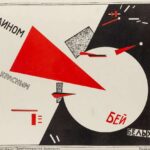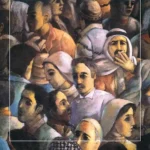Earlier this month, the South African government presented its case to the International Court of Justice (ICJ), accusing Israel of perpetrating and/or attempting to commit genocide, inciting genocide, and failing to prevent genocide during Israel’s ongoing brutal assault on Gaza.
The South African government substantiated its allegations with extensive evidence. This included long lists of genocidal statements made by Israeli leaders, statistics outlining the mass murder of civilians (including many thousands of children), clear evidence of collective punishment measures such as failure to provide sufficient aid and cutting off Gaza’s main water supply, and so much more.
Israel categorically denied all accusations. According to the Israeli government, all the horrors reported by South Africa were either false, exaggerated, or “incidental to military action.”
Needless to say, I find Israel’s denials completely unconvincing. But my goal here is not to adjudicate the arguments before the ICJ. Instead, I want to delve into a different matter.
I recently stumbled upon an especially pernicious exemplar of Zionist rhetoric, published by Israeli Zionist “activist” Noa Tishby in USA Today on January 16. In her article, Tishby dismisses South Africa’s accusations against Israel before the ICJ as entirely baseless. I want to explore her arguments in detail to provide insight into how pro-Israeli PR functions. Tishby’s article lays out everything needed to piece together a basic understanding of Zionist rhetoric, how it works, and why it can be so dangerous.
For this purpose, I will selectively critique sections of her article one by one. This approach, on my view, best captures how Zionist rhetoric works and how to effectively engage with it. I will conclude with a brief summary after working through the sections from Tishby’s article.
- “[The] Biden administration has forcefully rejected the South African case, with White House national security spokesperson John Kirby stating that the United States finds “this submission meritless, counterproductive, and completely without any basis in fact whatsoever.””
The Biden administration has a strong motivated interest in reaching and maintaining its current conclusions. If South Africa’s genocide case stands and the ICJ does find Israel guilty of attempting, perpetrating, and/or failing to prevent genocide, then Biden’s administration could be implicated in these crimes. Beyond international ramifications, complicity, attempt, and conspiracy to genocide are all serious criminal offenses in the United States. While Biden and his fellow butchers may in the end be above the law, they still have reason to fear spending the rest of their lives embroiled in expensive and popularity-destroying legal battles.
Complicity in genocide is, simply put, bad for business. A judgement by any international juridical body declaring the U.S. complicit in genocide would negatively impact the profit margins of the military-industrial complex and set back the careers of key political figures within the Biden administration and our legislative bodies. They will never face justice, but they may well be voted out of the offices they so idolize.
Yet another reason the Biden administration is not a remotely credible source: the U.S. government’s long history of lying through its teeth to justify acts of violent imperialism. The U.S. does not fight for justice; it manufactures consent for mass murder and exploitation in the global South.
Biden himself has repeatedly lied throughout the past months about seeing non-existent footage of Israeli babies beheaded by Hamas on October 7th. He and his administration have recently started pushing an expressly false narrative emphasizing efforts to “reign in” Israel—all while giving unprecedented support to Israeli military operations.
A similar case within our lifetimes: the Bush administrations’ lies claiming Iraq possessed “weapons of mass destruction” were employed to justify the slaughter of hundreds of thousands of Iraqis, the toppling of the Iraqi government, and the imposition of sanctions that have killed over a million more.
Interestingly, much like Hamas command centers, WMDs were commonly supposed to be hidden beneath hospitals. Surely, we can learn something from that.
- “The fact of the matter is that more than 100 Israelis are still being held captive by Hamas, and released hostages have disclosed that they are undergoing severe sexual and psychological abuse. . . .Hamas rockets continue to rain down on Israel, including Tel Aviv and Jerusalem. The U.N. Charter specifically provides that “nothing in the present Charter shall impair the inherent right of individual or collective self-defense if an armed attack occurs against a Member of the United Nations.” Israel’s actions in clear self-defense of its people and territory recognized as part of the state since its inception preclude any conception of genocide.”
The self-defense argument is not up to snuff as an argument against South Africa’s accusations. Under international law, the Gaza Strip is under belligerent occupation by Israel. As explained by U.N. Special Rapporteur Francesca Albanese, “Israel cannot claim the right of self-defence against a threat that emanates from the territory that it occupies.”
Article 31 of the Rome Statute further elaborates that the right of any sovereign to self-defense does not preempt criminal liability for bringing about conditions of life “calculated to bring about [the] physical destruction” of any given national, ethnical, racial, or religious group. Acts such as the decimation of Gaza’s healthcare system, which I discuss later in this piece, are straightforward examples of acts not protected in any case by the right of self-defense.
- “Hamas itself is the source for the hyperinflated casualty counts sometimes reported in the Western media and has been caught out in obvious lies such as the impossible claim – within seconds – of 500 killed after a blast at a hospital in Gaza, which turned out to have been caused by a Palestinian Islamic Jihad terror rocket that fell short.”
Tishby’s initial claim, that Gaza’s Ministry of Health hyperinflates casualty counts, is at best conspiratorial and at worst a malicious attempt to discredit clear evidence of Israel’s numerous crimes against humanity.
The UN and a number of other organizations, including most credible news outlets and human rights organizations, have consistently found the Ministry of Health to be a trustworthy source. As AP news reported in November: “The United Nations and other international institutions and experts, as well as Palestinian authorities in the West Bank — rivals of Hamas — say the Gaza ministry has long made a good-faith effort to account for the dead under the most difficult conditions.” It is a well-known fact that Gaza’s Ministry of Health is a trustworthy source. So why does Tishby feel the need to lie?
On to claim #2. The bombing and subsequent seizure of the al Shifa hospital—the hospital Tishby references in the above passage—is only a small (though horrific) part of Israel’s campaign of systematic destruction of healthcare facilities throughout the Strip. And, no, the “blast” Tishby references was not caused by an “Islamic jihad terror rocket.” It was caused by Israeli munitions, as verified by The New York Times all the way back in November. Anyways. Back to the full scope.
By the time you are reading this, it is likely that there will be zero functioning hospitals left in Gaza. Israel has methodically destroyed each and every one, and they no longer even bother trying to mislead the public or hide the evidence.
Israel’s vicious attacks on the few remaining lifelines for all of the Palestinians in Gaza have been ongoing since October of last year.
A Washington Post investigation in late December provided evidence that “Israel has dropped some of the largest bombs commonly used today near hospitals.” Many of these bombs are American-made.
This was only the tip of the iceberg. Another comprehensive investigation, this time by Forensic Architecture, found “that hospitals in Gaza are being subjected to a systematic pattern of intimidation and violence by the Israeli military as part of the ongoing invasion.”
What can we take from this? Tishby’s exclusive focus on al Shifa Hospital both drastically downplays the severity and intensity of Israel’s destruction of Gaza’s healthcare system and flat-out lies to the reader through citation of a long-disproven theory.
At this stage, one may question the credibility of all Tishby’s assertions.
- ““Holocaust Inversion” has been defined as the “perverse use of the Holocaust as a stick to beat ‘the Jews.’ ” Indeed, the widely adopted International Holocaust Remembrance Alliance’s definition of antisemitism explicitly recognizes “drawing comparisons of contemporary Israeli policy to that of the Nazis” as an example. . . .By weaponizing the concept of “genocide” against Israel’s right to defend its people from one of the great human rights violations of this century, the Oct. 7 mass murders by Hamas and its abduction of innocent civilians, South Africa is engaging in Holocaust Inversion at the global scale.”
This peculiar argument appears to rest on the idea that the only genocide worth considering, and thus the sole point of reference, is the Shoah. Consequently, through some perverse logic, South Africa must be accusing Israel of being “like the Nazis.” Of course, accusing Israel of genocide is not accusing Jewish people as Jewish people of committing a genocide; it is to accuse a particular nation state obliged to uphold the Genocide Convention of violating that convention by committing a genocide. Hence, South Africa’s case before the ICJ does not fit the definition of Holocaust inversion, even if it incidentally draws parallels between Israel’s actions in Gaza and Germany’s actions during the Holocaust.
South Africa’s accusations draw parallels to the Shoah insofar as the Shoah is a genocide. But the Nazis do not have a monopoly on genocide. One scholar and survivor of the Bosnian genocide, for example, has spent the past several months exploring the ongoing catastrophe in Gaza by relating the Palestinian experience of (alleged) genocide to her own experience as a Bosniak living through the Bosnian genocide of the mid-1990s.
Again contrary to Tishby’s insinuations, the model for South Africa’s case is not the Holocaust but an ongoing case before the ICJ: Gambia v. Myanmar. In this case, the state of Gambia accuses Myanmar of multiple violations of the Genocide Convention directed against Rohingya Muslims. In November, multiple additional parties—including Germany, who stands on the opposite side of the isle in the Gaza genocide battle—submitted an intervention in support of Gambia’s case against Myanmar.
While the details differ, the basic contours of both the accusations against Israel and those against Myanmar are not dissimilar: as explained in Just Security, both parties have been accused of multiple violations of the Genocide Convention by signatories of the Genocide Convention not directly impacted by the alleged violations. Both are state-to-state disputes aimed primarily at securing injunctions against cooperation with the accused—such as the provision of military support—as well as injunctions requiring the accused immediately discontinue any actions that may plausibly violate the accused’s obligations under the Convention.
Tishby, unsurprisingly, ignores this crucial context.
She also ignores that many countries backing South Africa’s case against Israel are doing so as a result of their own suffering from historical genocides. Namibia, for example, issued a statement linking its support for South Africa’s case to the genocide of its own people by German colonizers at the beginning of the 20th century. During the Namibian genocide, Germany’s first death camp, later used as a model for Auschwitz, was constructed to facilitate the mass murder of any Namibians who dared lift a finger against the colonizers.
Tishby does not mention anything like this, of course, It would throw her entire narrative into disarray.
I would also briefly note that whether or not South Africa’s case is antisemitic according to the IHRA’s definition of antisemitism is irrelevant to its legal standing in the ICJ. Tishby’s invocation serves only one purpose: weaponizing antisemitism accusations to discredit those fighting for justice on the global stage.
- “Israel is definitely not engaged in genocide because it has no “intent to destroy” the Palestinian population. Rather, Israel is engaged in resolute self-defense, with the clear goals of rescuing the hostages and liberating the Gazan people from Hamas rule.”
The notion that any such “clear goal” guides Israel’s actions in Gaza is entirely unfounded. With tens of thousands already killed, entire cities rendered unlivable, and disease outbreaks threatening to kill hundreds of thousands more over the next year—all as a direct result of Israel’s vicious onslaught—one has to ask: when all this ends, who will be left to “liberate?”
What is “liberate” supposed to mean, anyways? The people of Gaza are not demanding “liberation” from their government. In fact, the most recent large-scale opinion poll of Palestinians in the Gaza Strip (22nd Nov. through 2nd Dec. 2023) found that support for Hamas had grown substantially since the beginning of Israel’s assault on Gaza, alongside significantly bolstered support for armed struggle against the Israeli occupation.
As media critic Adam Johnson rightly points out, “There is not a single prominent Palestinian politician, scholar, civil society organization, or diaspora group calling for Israel to bomb Gaza in order to “liberate it from Hamas.” What they are calling for is the end of Israel’s horrific violence against them and their people.
Again contrary to Tishby’s “clear goals” claim, Israeli politicians and popular figures—including the Prime Minister and Israeli Defense Forces leaders central to the current Gaza campaign—have loudly declared intentions to do anything from “thinning out” the population of Gaza to a “minimum” to “erasing the Gaza Strip from the face of the earth.”
To Tishby’s credit, while the goals of Israel’s assault are not clear, the messages accompanying it are perfectly clear—that is, they are clear incitement to genocide.
But what about the hostages? A thorough investigation by +972 Magazine found that Israel’s relentless and indiscriminate bombing of the Gaza Strip has put the hostages held by Hamas (alongside other Palestinian organizations operating in the Strip) in repeated danger, and likely has killed at least several.
Despite having no clear idea where in the Strip many of the hostages were and are being held, Israel has continued to level entire cities blocks at a time. Now, as thousands of people lie beneath the rubble, little doubt remains that Israel has murdered at least a few of the Israeli hostages. Israel’s campaign of terror is not and has never been about “bringing back the hostages.”
So much for clear goals.
- “Hamas, with its explicit goals of mass murder and monstrous methods targeting civilians, is the real perpetrator of genocide − and the world deserves to know the truth.”
If there was any legitimacy to the claim that Hamas perpetrated a genocide on October 7th, it would still not function as a defense against South Africa’s accusations. There is no clause in the Genocide Convention allowing for retaliatory genocidal activity. “Mom, it’s my turn on the genocide!” is, shockingly, neither a convincing nor a legitimate claim to right and righteousness.
There is no room for justifying any genocidal actions as forms of retribution. Attempting to use “turn-taking” logic as a defense against accusations of genocide is legally and morally untenable.
Alright, I think that about covers everything that warrants covering.
Tishby’s article is nothing more than a propaganda piece aimed at shutting down those fighting for freedom, justice, and the end of Israel’s brutal campaign of mass murder. At no point in her article does she meaningfully engage with the substance of South Africa’s accusations or the evidence for those accusations.
I chose her piece as an object of critique not because her arguments are convincing or engaging, but because it plays to many of the central tropes common to Zionist propaganda.
The use of vague references to “self-defense” as a catch-all exculpatory framework, the belief that responding to violence with (wildly disproportionate amount of) violence is uniquely justified for Israel and only Israel, selective use of references to portray Israel as a perpetual victim incapable of wrongdoing, and paternalistic claims to be acting in the Palestinians’ best interest (by killing Palestinians)—all are commonplaces of Zionist propaganda, and all are conveniently consolidated in Tishby’s article.
Take a scalpel to any piece of pro-Israel PR and you’ll find nothing but bored clichés, tired excuses, and a mess of misinformation and flat-out lies underneath the skin. Don’t fall for it, and don’t let it dissuade you from the pursuit of justice for Palestine.




Leave a Reply